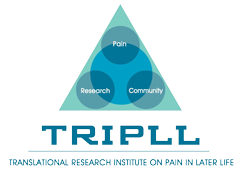Abstract
Pain significantly restricts the quality of life and well-being of older adults. With our increasingly ageing population, it is important to examine whether differing classes of biopsychosocial risk factors can predict the development of pain in older adults. Latent class analysis (LCA) provides a model-based approach to identifying underlying subgroups in a population, based on some measured characteristics. In this study, LCA was used to identify biopsychosocial risk classes in people aged over 50, from The Irish Longitudinal Study on Aging (TILDA), who reported not often being troubled by pain at Wave 1 and completed the two year follow-up at Wave 2 (n=4,458). Four classes were identified based on eleven potential risk factors at Wave 1. These classes were characterised as ‘Low Risk’, ‘Physical Health Risk’, ‘Mental Health Risk’ and ‘High Risk’. The Low Risk class accounted for over half the sample (51.2%), while the High Risk class represented 7.8% of the sample. At follow-up (Wave 2), 797 (17.9%) participants reported being troubled by pain. Associations between the biopsychosocial risk classes and developing pain were examined using logistic regression, adjusting for socio-demographic variables. The High Risk class was more likely to develop pain compared to the Low Risk class ( adjusted OR= 3.16, 95% CI= 2.40, 4.16). These results add to existing data in other populations supporting the role of a range of biopsychosocial risk factors which increase the risk of developing pain. These findings have important implications for the identification, and potential moderation, of these risk factors.
To read the full article, click here.
